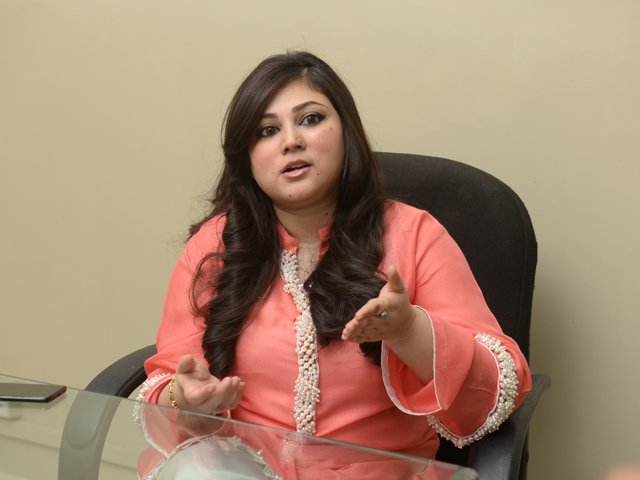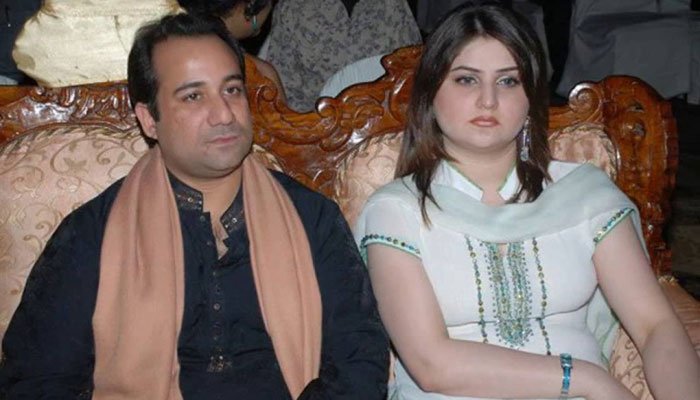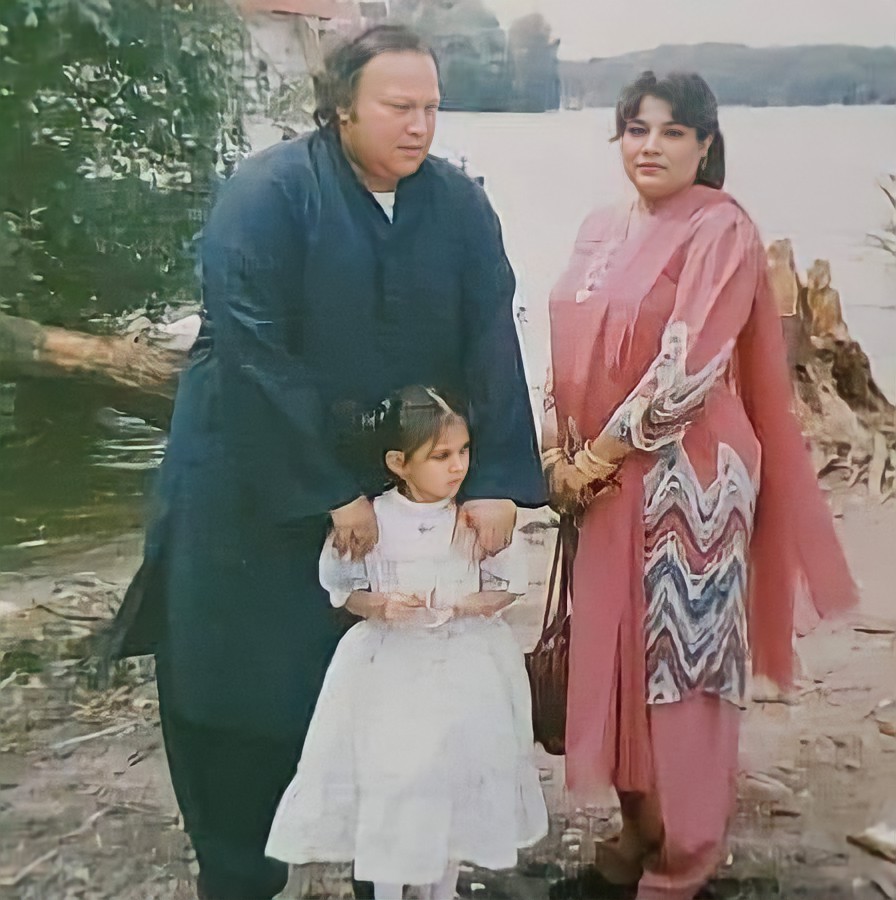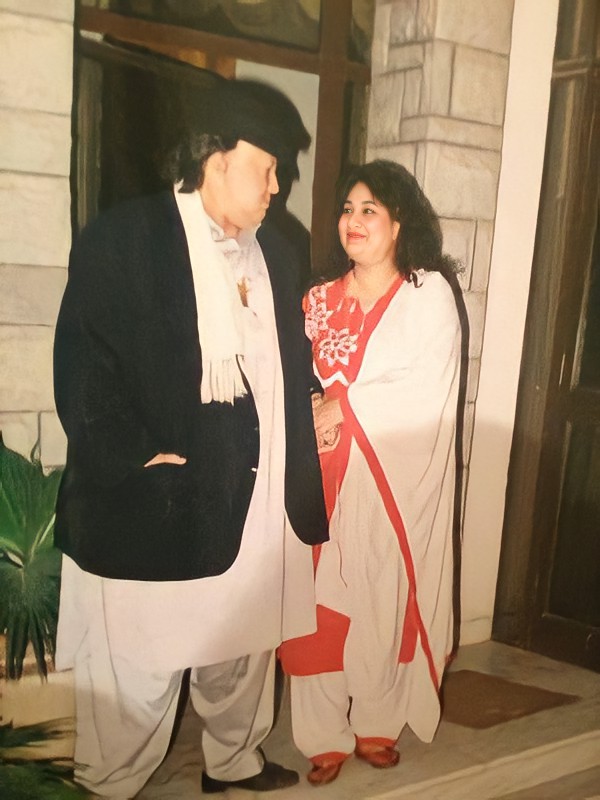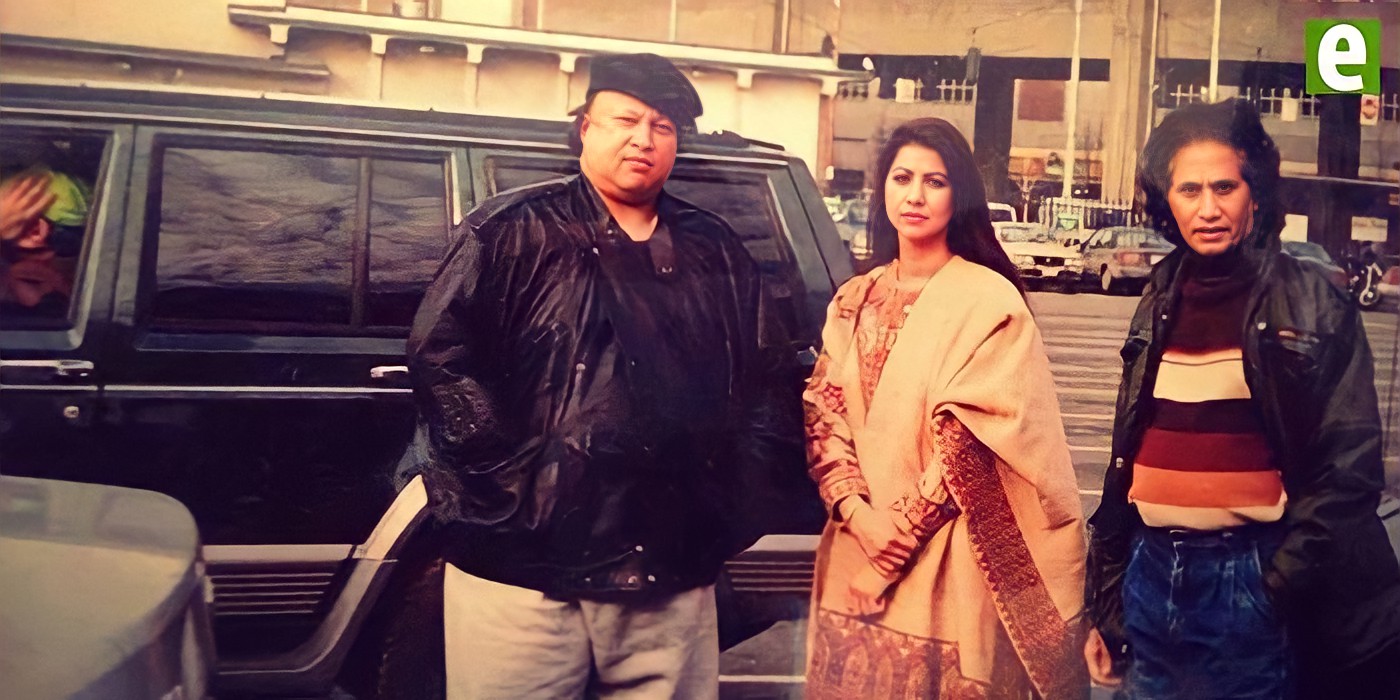Nusrat Fateh Ali Khan Family Photos

A young man recites Natia and mysticism at the court of the Sufi saint Sai Muhammad Bakhsh alias Lasori Shah of Faisalabad in the 1960s. This is not unusual. But did anyone know that this boy from Punjab would become the ‘Emperor of Qawwali’ in the world of music?
He belonged to the Qawwal family. Many young people like him have been taught the syllabus of rhythm, rhythm and rhythm since childhood, whether they like it or not.
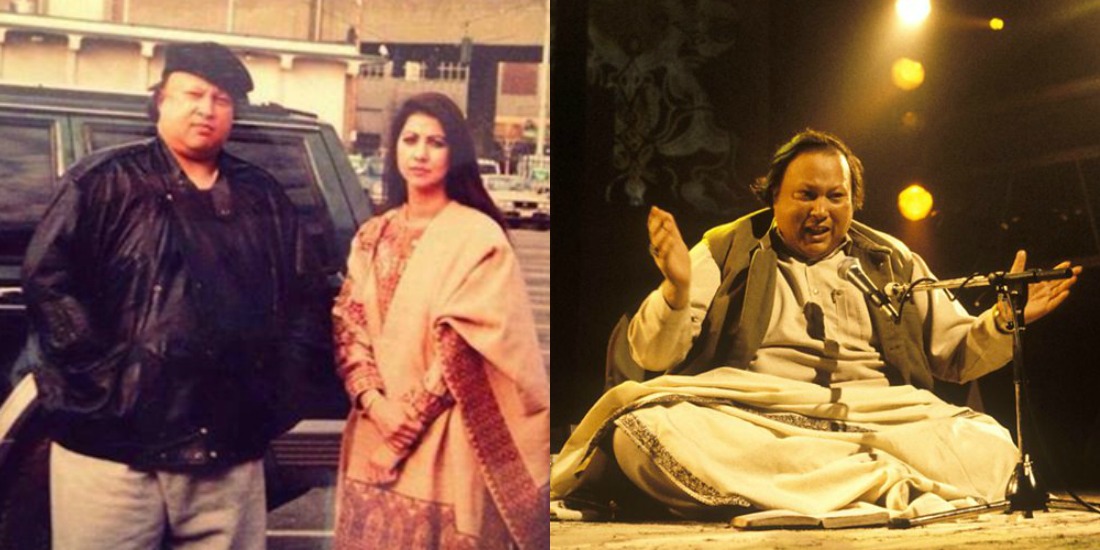
But this young boy was so skilled at the maturity of his voice and the lifting of the strings that his listeners were lost in his fascination.
Nusrat Fateh Ali Khan was the name of this grandson of the Patiala family who migrated from Jalandhar, India before the formation of Pakistan.
But this was a time when no one knew Nusrat. Yes, everyone knew that he was the son of the famous Qawwal Ustad Fateh Ali Khan of that time.
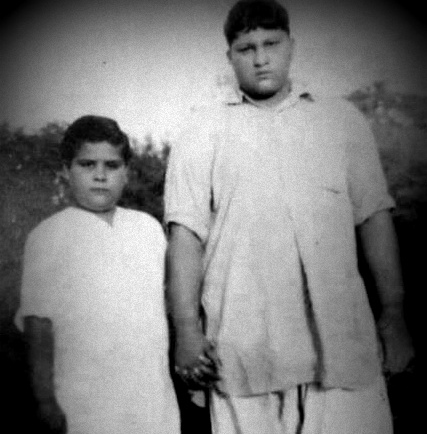

Nusrat had been obsessed with music since childhood and at just ten years old, he had mastered the tabla.
After the death of his father Ustad Fateh Ali Khan in the early 1960s, he began to receive regular training in Qawwali from his uncles Ustad Mubarak Ali Khan and Ustad Salamat Ali Khan, and Ustad Mubarak Ali Khan died in the 1970s. After that he headed his Qawwal family.
Starting his artistic journey from a court in the famous Jhang Bazaar of Faisalabad, the diamond was spotted by a jeweler named Mian Rehmat who had been the owner of a gramophone record shop in Faisalabad since the establishment of Pakistan.
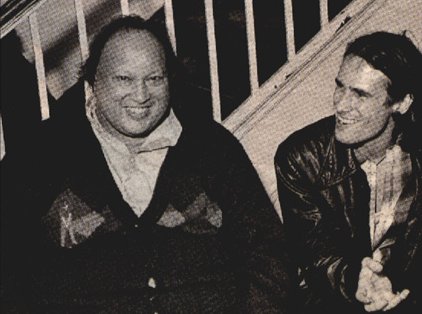
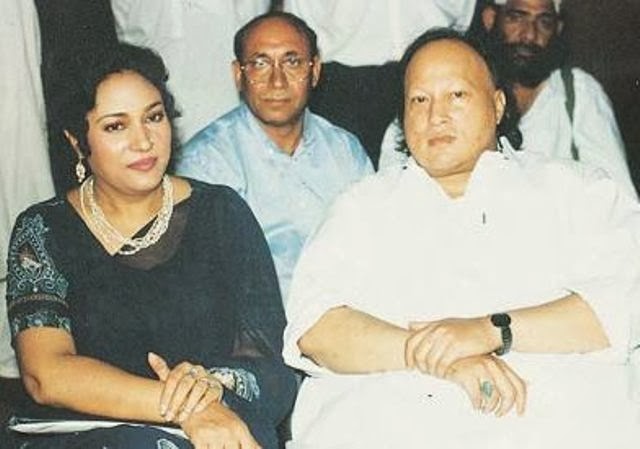
Nusrat’s father was already in a ceremony with Ustad Fateh Ali Khan.
The singer got tired, Nusrat’s drum did not stop
Mian Asad, the son of Mian Rehmat, the owner of Rehmat Gramophone Recording Studio, says of Nusrat that he has many memories that are still fresh in the windows of his mind.
He says his father has known Mian Rehmat Nusrat’s family since the 1960s.
“My father first met Fateh Ali Khan, Nusrat’s father, who was a famous poet of Faisalabad at that time.”
“My father’s acquaintance with Nusrat dates back to his fifties, but in the 1970s, when he officially took over the leadership of his Qawal family after the death of his uncle Ustad Mubarak, my father introduced Nusrat as The artist began to notice.
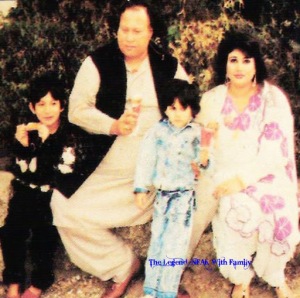
Mian Asad says that in the beginning, a Sufi saint of Nusrat Faisalabad used to recite Naat Kalam and sing Qawwali at the court of Sai Muhammad Bakhsh alias Baba Lasuri Shah. His residence was also in front of this court.
Court of Sufi saint Sai Muhammad Bakhsh alias Bab Lasori Shah in Faisalabad
According to Mian Asad, Ustad Nusrat was trained to play the tabla before Qawwali and he played the tabla with great skill.
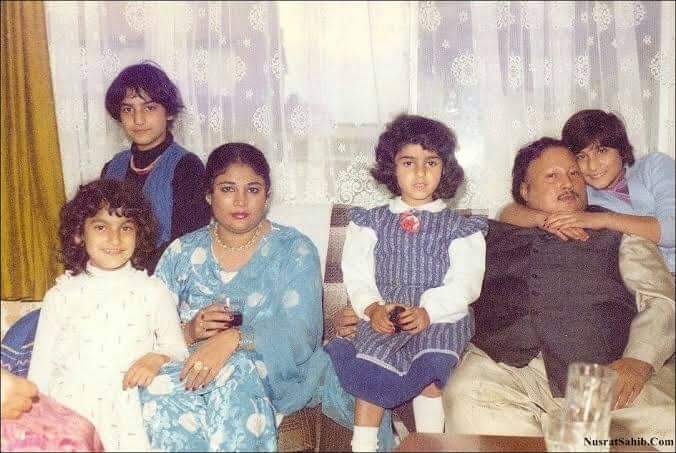
Referring to an incident he heard from his father, Mian Asad says, “When Nusrat was ten or eleven years old, there was no drummer at a Qawwali party and he asked Nusrat to play the drum. Gone There he gave such performances that the singer got tired but Nusrat did not get tired and he cast a spell on the listeners.
Nusrat teaches reading and writing
Mian Asad says that since his student days, a series of meetings with Nusrat had started at Rehmat Gramophone Recording Studio or at home. However, “my professional relationship with Nusrat was formally established in 1992 when he started helping his father in his business.”
He says, “I used to listen to his stories and conversations with my father. We used to have informal meetings with him, sometimes at the shop and sometimes at our house.”
